~ LordM Box of 20 archive, 3/8/14
 lordmarcovan
Posts: 44,070 ✭✭✭✭✭
lordmarcovan
Posts: 44,070 ✭✭✭✭✭
In 2013, I decided to pare down my collections and simplify to just one single "Box of 20" for everything, hopefully to focus a bit more on quality than quantity. Still, pursuing quality is an ongoing challenge on my budget. As of the spring of 2014 I have the box full, and there are some nice coins in it, but there are still quite a few pieces that could be considered "filler" material in here.
I originally called this set "The 'ADAM' Collection" (for Ancient, Dark Age, and Medieval.) The idea was a freestyle "Box of 20" collection with no parameters except that everything would predate 1600 AD. Now I've even thrown that restriction out the window, so basically the only parameters here are that the coins must be certified and the collection is still limited to twenty pieces. Otherwise, anything goes. In a way, I have narrowed my focus by limiting myself to just twenty slabbed pieces, but on the other hand, I've opened up my horizons to pursue whatever catches my fancy, be it ancient, medieval, modern, or even some tokens and medals. It sort of feels liberating to be freed of the constraints of collecting "sets" and being a slave to "structure".
I was running my "Twelve Caesars" Roman collection* in a separate box of its own, but after selling a few of those pieces, I rolled the remainder of them into this box, so as of early 2014 the set is still a bit Roman-heavy (and British heavy, since that's another past collecting pursuit of mine). One day I might break all of this out again into separate Boxes of 20 (ancient, medieval, modern, etc.) but for now I lack the budget and attention span to juggle multiple projects, and if I did, the quality of the individual pieces would become watered down.
So now there is but one Box of 20 for my active collection. To wax Tolkienesque about it, "One box to rule them all... One box to find them... One box to bring them all, and in the darkness bind them."

 = my "top" coin; this usually indicates the most monetarily valuable, since my whims and sentimental "favorites" tend to fluctuate.
= my "top" coin; this usually indicates the most monetarily valuable, since my whims and sentimental "favorites" tend to fluctuate.
 = my "bottom" coin; this doesn't necessarily imply I dislike it, but means it will likely be the first out once something else is added.
= my "bottom" coin; this doesn't necessarily imply I dislike it, but means it will likely be the first out once something else is added.
Ancient Greece: Ionia, Teos, silver trihemiobol, ca. 500-450 BC.
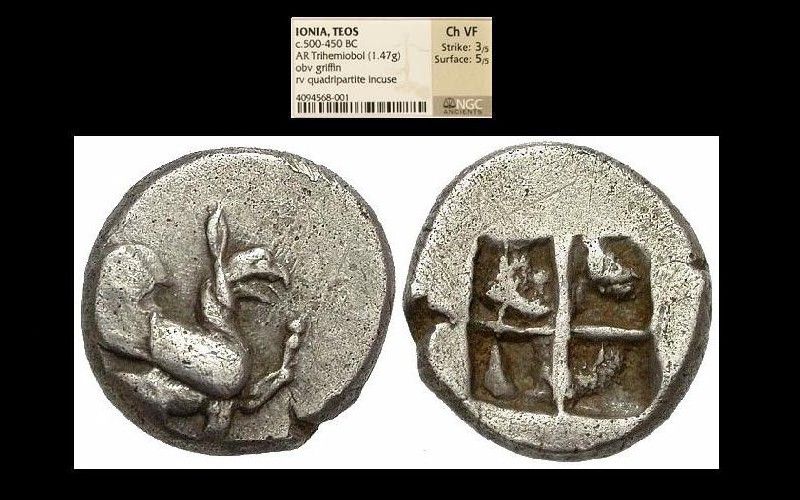
Ancient Greece: Kingdom of Macedon, silver drachm of Alexander III ("The Great"), ca. 336-323 BC, lifetime issue
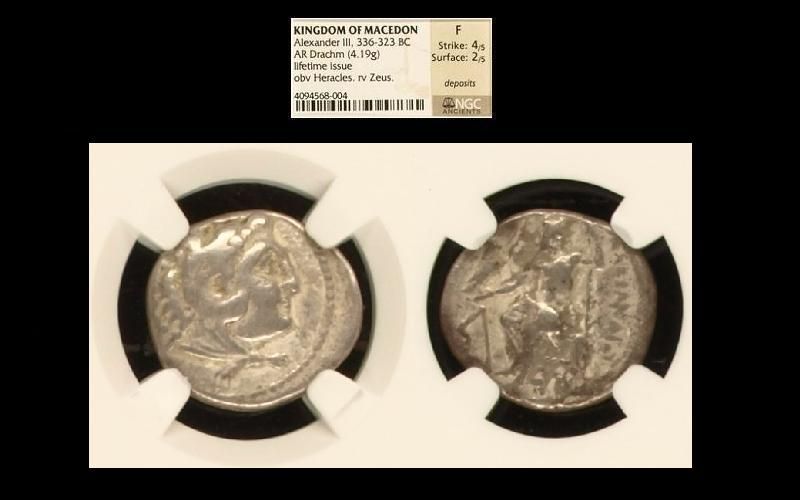
Ancient Greece: Seleucid Kingdom, bronze AE19 of Antiochus VIII, ca. 121-96 BC
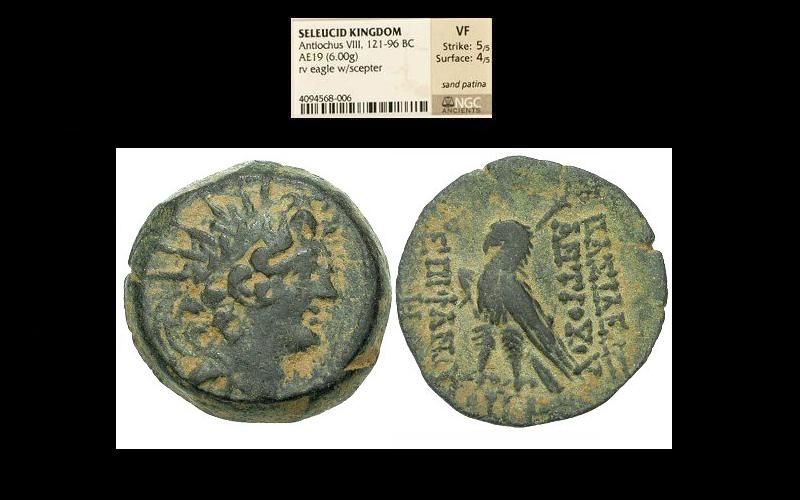
Ancient Rome (Imperial): silver denarius of Tiberius, ca. 14-37 AD: the biblical "Tribute Penny"
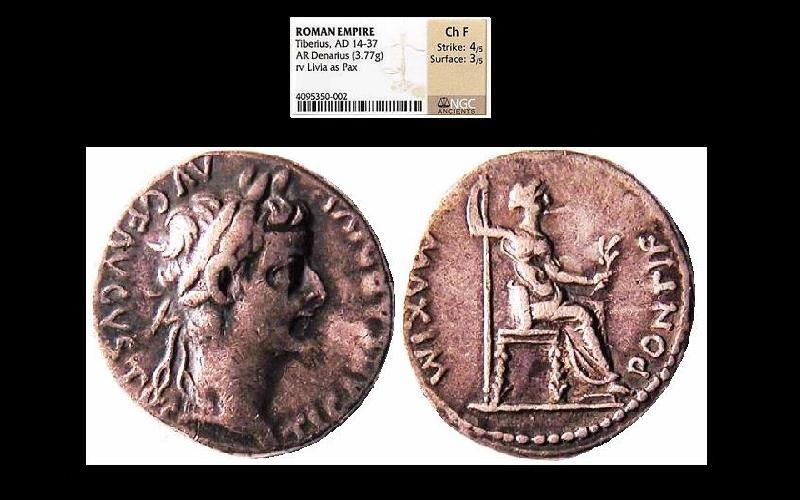
Ancient Rome (Imperial): bronze as of Gaius "Caligula", ca. 37-41 AD
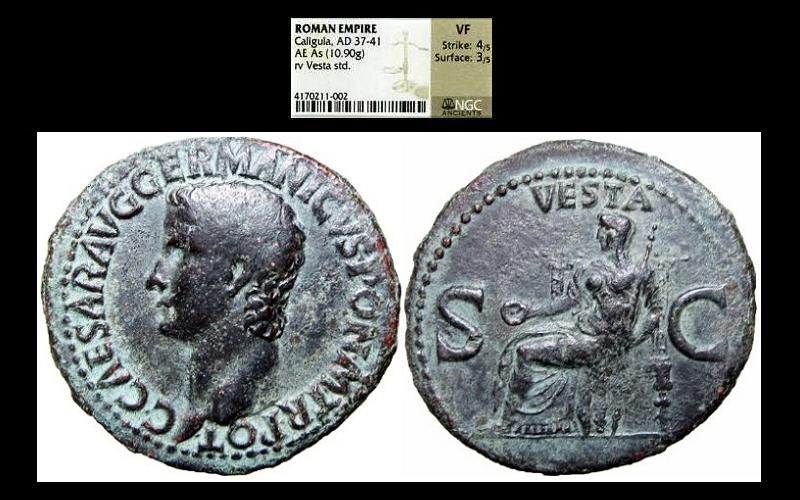
Ancient Rome (Imperial): bronze as of Claudius, ca. 41-54 AD
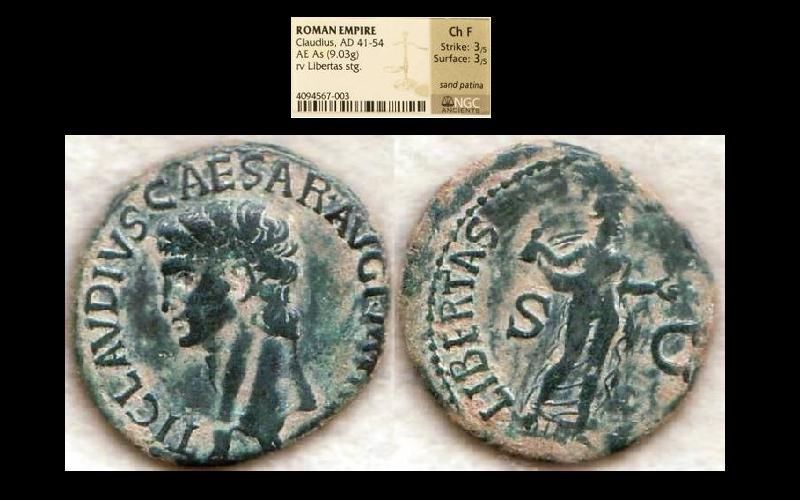
Ancient Rome (Imperial): silver denarius of Otho, ca. January-April, 69 AD
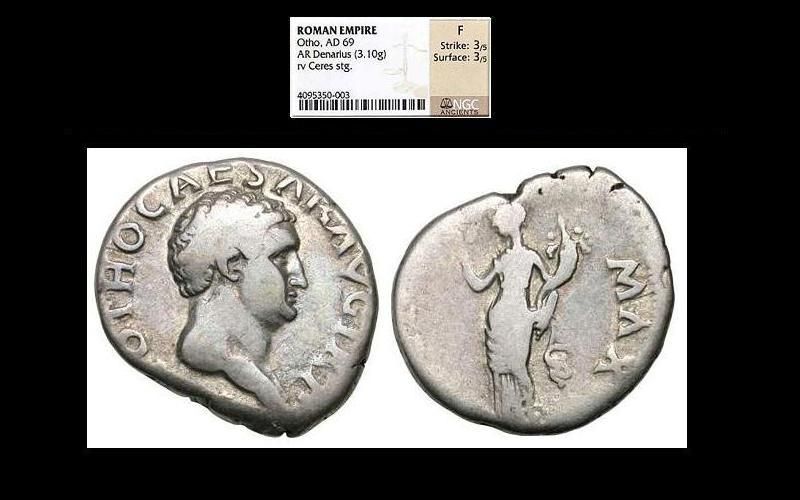
Ancient Rome (Imperial): silver denarius of Domitian, (81-96 AD), struck ca. 92 AD
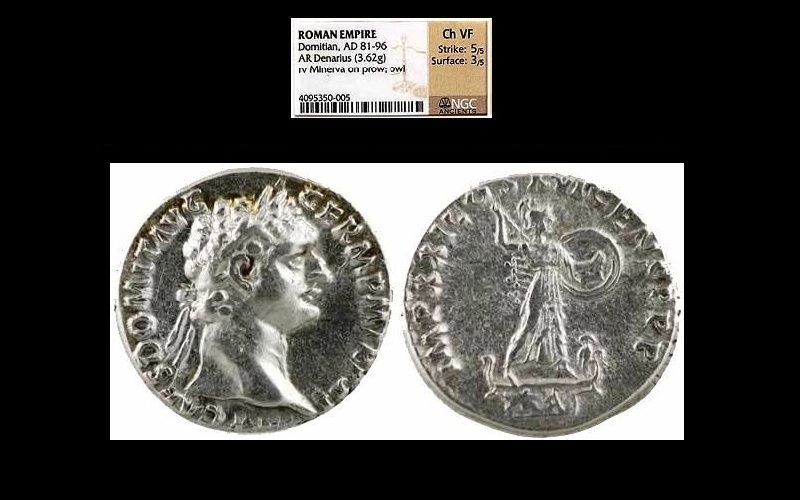
 Ancient Rome (Imperial): silver denarius of Julia Mamaea (d. 235 AD)
Ancient Rome (Imperial): silver denarius of Julia Mamaea (d. 235 AD)
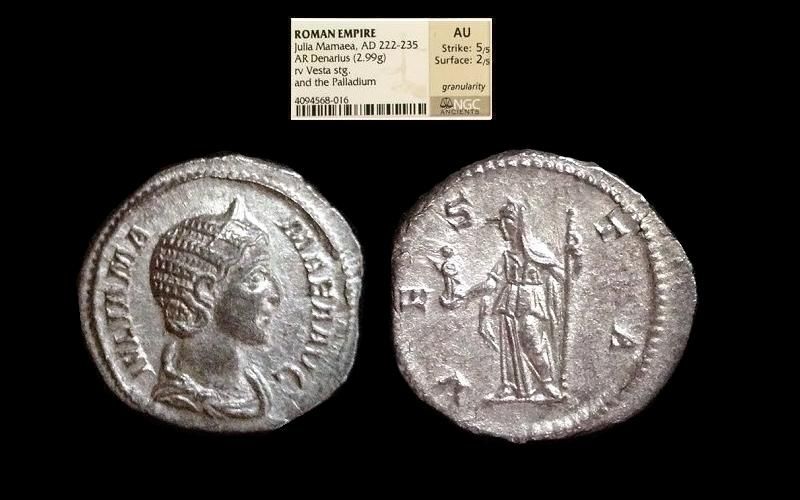
Ancient Byzantine Empire: gold tremissis of Justinian I, ca. 527-565 AD
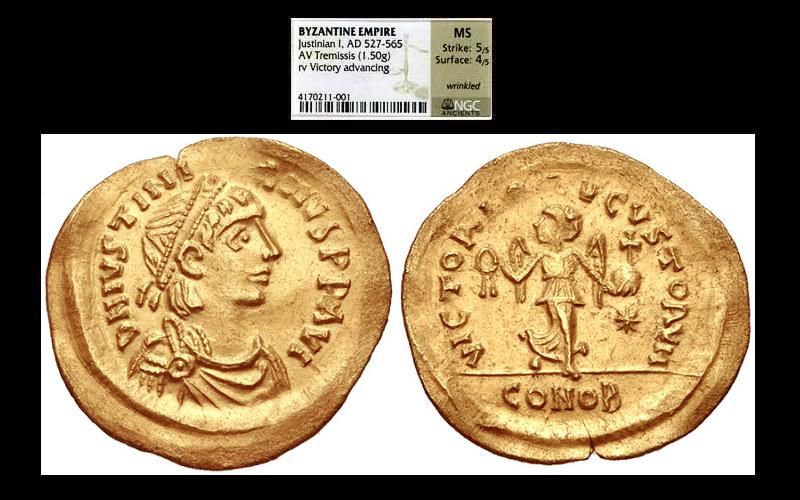
 England (Anglo-Saxon): silver penny of Aethelred II (978-1016 AD), struck ca. 997-1003 AD
England (Anglo-Saxon): silver penny of Aethelred II (978-1016 AD), struck ca. 997-1003 AD
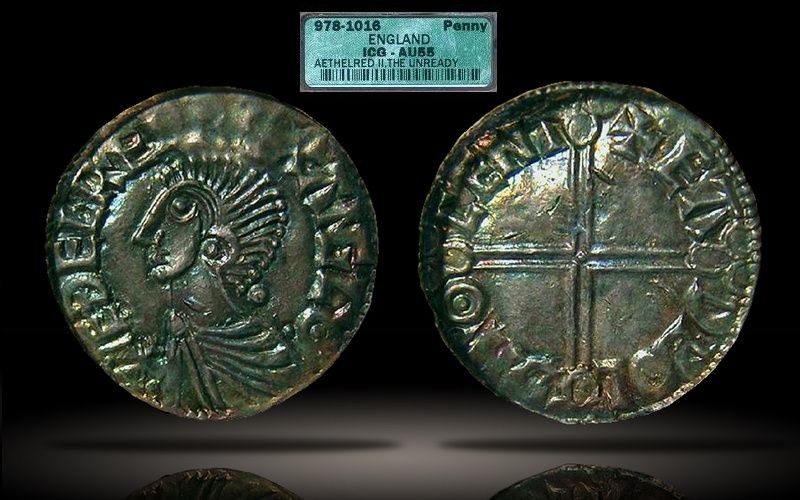
England: silver Short Cross penny of King John (1199-1216), struck in the name of Henry II, ca. 1205-1207
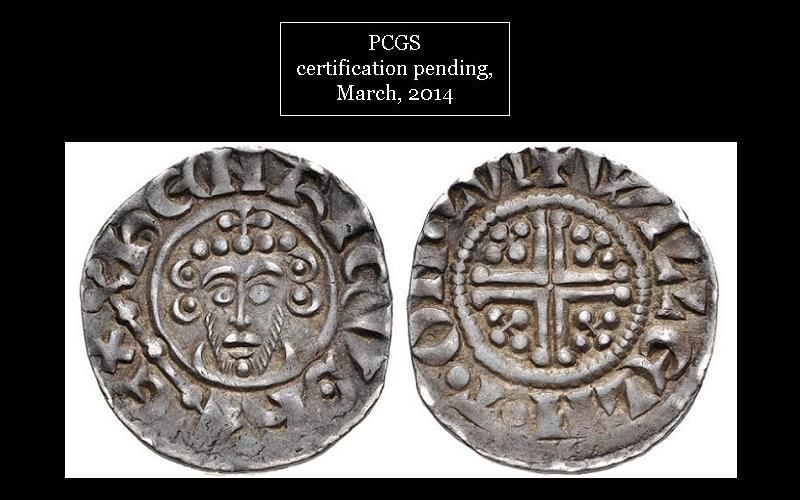
Italy (Venice): silver grosso of Antonio Venier, ca. 1382-1400
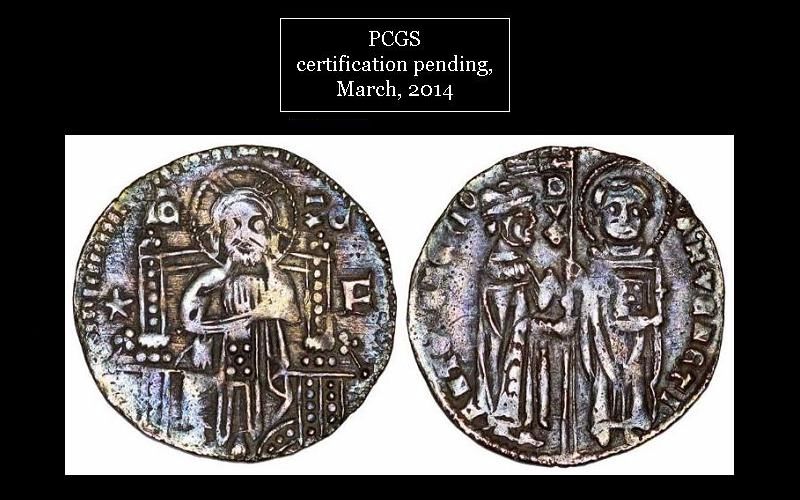
Great Britain, silver "South Sea Company" shilling of George I, 1723
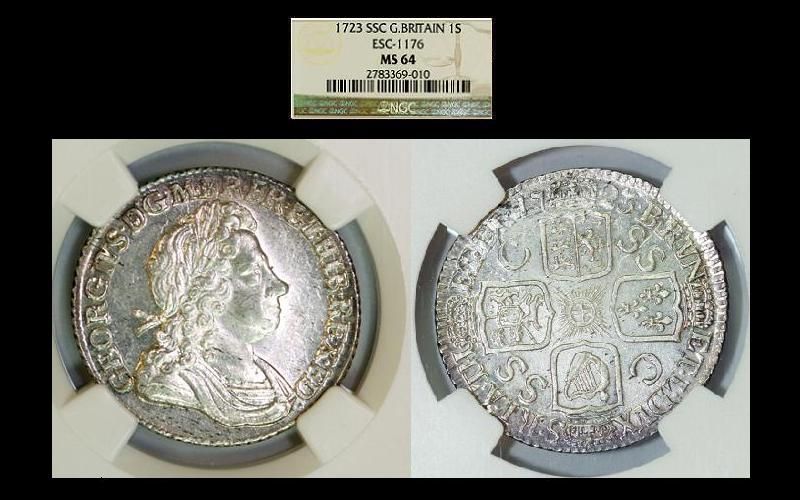
Great Britain: gilt proof halfpenny of George III, Soho Mint, 1806
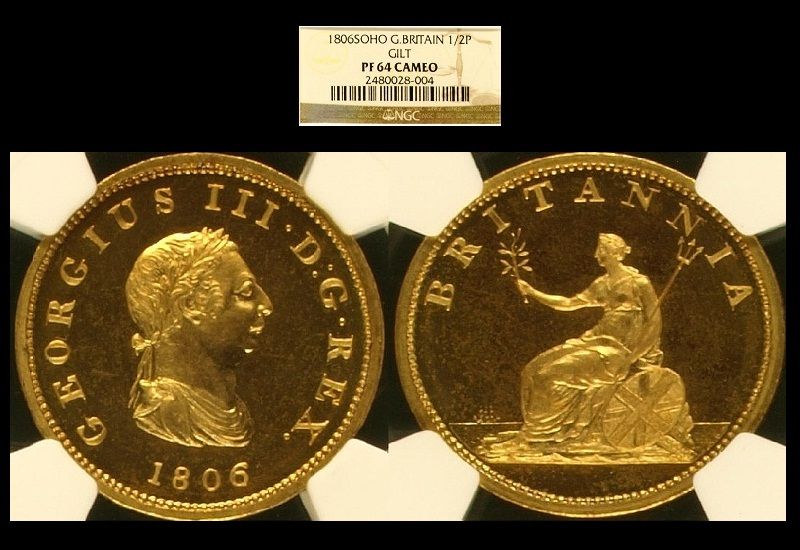
USA: silver three-cent piece, 1860
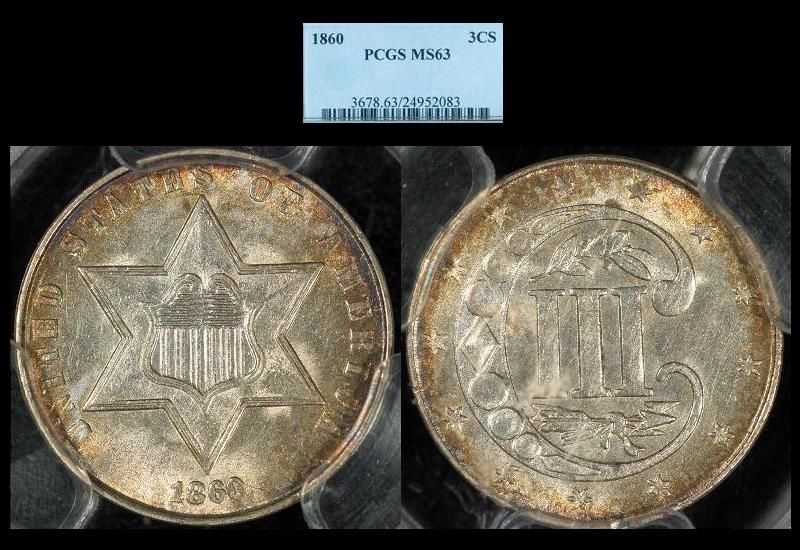
USA: Civil War token, "Our Little Monitor", 1863
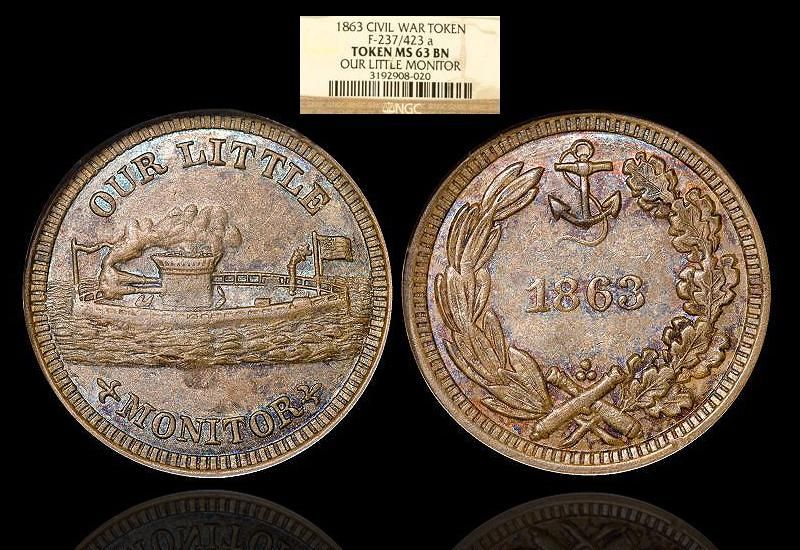
Japan (Meiji Era): gold Nibu-Kin (2 bu), ca. 1868-1869
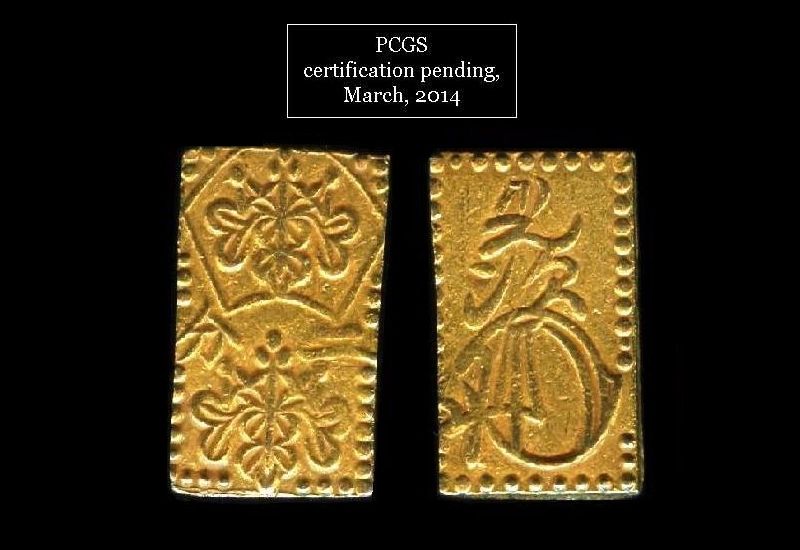
Great Britain: gold half-sovereign of Queen Victoria, 1901, from the Terner Collection
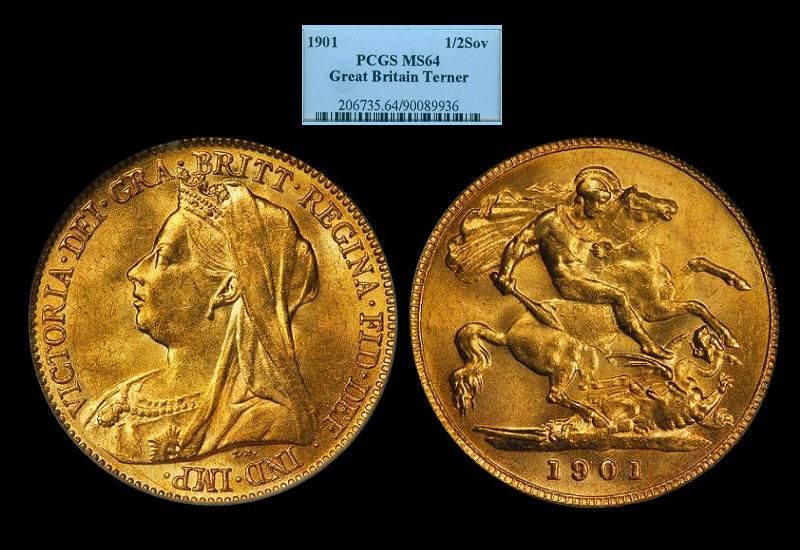
German States (Saxony) silver 3 mark proof, Battle of Leipzig centennial commemorative, 1913-E
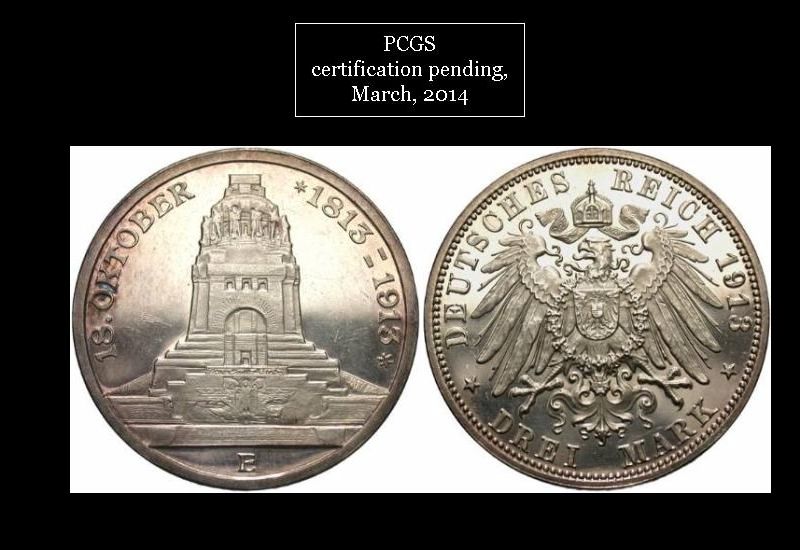
I originally called this set "The 'ADAM' Collection" (for Ancient, Dark Age, and Medieval.) The idea was a freestyle "Box of 20" collection with no parameters except that everything would predate 1600 AD. Now I've even thrown that restriction out the window, so basically the only parameters here are that the coins must be certified and the collection is still limited to twenty pieces. Otherwise, anything goes. In a way, I have narrowed my focus by limiting myself to just twenty slabbed pieces, but on the other hand, I've opened up my horizons to pursue whatever catches my fancy, be it ancient, medieval, modern, or even some tokens and medals. It sort of feels liberating to be freed of the constraints of collecting "sets" and being a slave to "structure".
I was running my "Twelve Caesars" Roman collection* in a separate box of its own, but after selling a few of those pieces, I rolled the remainder of them into this box, so as of early 2014 the set is still a bit Roman-heavy (and British heavy, since that's another past collecting pursuit of mine). One day I might break all of this out again into separate Boxes of 20 (ancient, medieval, modern, etc.) but for now I lack the budget and attention span to juggle multiple projects, and if I did, the quality of the individual pieces would become watered down.
So now there is but one Box of 20 for my active collection. To wax Tolkienesque about it, "One box to rule them all... One box to find them... One box to bring them all, and in the darkness bind them."

 = my "top" coin; this usually indicates the most monetarily valuable, since my whims and sentimental "favorites" tend to fluctuate.
= my "top" coin; this usually indicates the most monetarily valuable, since my whims and sentimental "favorites" tend to fluctuate. = my "bottom" coin; this doesn't necessarily imply I dislike it, but means it will likely be the first out once something else is added.
= my "bottom" coin; this doesn't necessarily imply I dislike it, but means it will likely be the first out once something else is added.Ancient Greece: Ionia, Teos, silver trihemiobol, ca. 500-450 BC.

Ancient Greece: Kingdom of Macedon, silver drachm of Alexander III ("The Great"), ca. 336-323 BC, lifetime issue

Ancient Greece: Seleucid Kingdom, bronze AE19 of Antiochus VIII, ca. 121-96 BC

Ancient Rome (Imperial): silver denarius of Tiberius, ca. 14-37 AD: the biblical "Tribute Penny"

Ancient Rome (Imperial): bronze as of Gaius "Caligula", ca. 37-41 AD

Ancient Rome (Imperial): bronze as of Claudius, ca. 41-54 AD

Ancient Rome (Imperial): silver denarius of Otho, ca. January-April, 69 AD

Ancient Rome (Imperial): silver denarius of Domitian, (81-96 AD), struck ca. 92 AD

 Ancient Rome (Imperial): silver denarius of Julia Mamaea (d. 235 AD)
Ancient Rome (Imperial): silver denarius of Julia Mamaea (d. 235 AD)
Ancient Byzantine Empire: gold tremissis of Justinian I, ca. 527-565 AD

 England (Anglo-Saxon): silver penny of Aethelred II (978-1016 AD), struck ca. 997-1003 AD
England (Anglo-Saxon): silver penny of Aethelred II (978-1016 AD), struck ca. 997-1003 AD
England: silver Short Cross penny of King John (1199-1216), struck in the name of Henry II, ca. 1205-1207

Italy (Venice): silver grosso of Antonio Venier, ca. 1382-1400

Great Britain, silver "South Sea Company" shilling of George I, 1723

Great Britain: gilt proof halfpenny of George III, Soho Mint, 1806

USA: silver three-cent piece, 1860

USA: Civil War token, "Our Little Monitor", 1863

Japan (Meiji Era): gold Nibu-Kin (2 bu), ca. 1868-1869

Great Britain: gold half-sovereign of Queen Victoria, 1901, from the Terner Collection

German States (Saxony) silver 3 mark proof, Battle of Leipzig centennial commemorative, 1913-E

Collector since 1976. On the CU forums here since 2001.
0